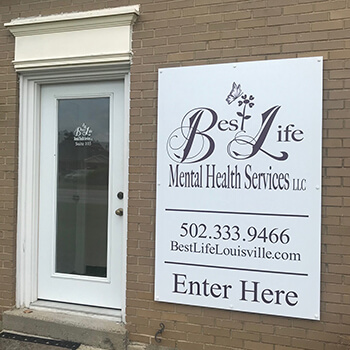Eric Sharp author of the following blog post was interviewed by Laura Ellis from “This Week in Conversation: Staying Home for the Holidays.” This podcast interview is a wonderful precursor to the blog post. Stay safe and enjoy the holidays.
Consent
One of the words I have been saying a lot this year is the word “consent”. It is typically a word that we think about in the context of dating and the verbs of dating, but I believe it’s an important word to think about in general.  Consent is often a conversation about what we are okay to experience with our bodies. It is not okay for my body to be put into a dangerous or unsafe situation without my permission. In this time where we are trying to navigate family expectations, event invitations, and safety, I believe it is helpful to think about this as a consent conversation. When we give ourselves permission to discuss and name what we are comfortable with, we are able to more clearly navigate these conversations. I recommend focusing on naming your conditions in the name of safety and then asking to see how the riddle can be solved. It can also be helpful to name alternative plans and/or ways that you can be with these folks in spirit that fit into the conditions of your plan for safety.
Consent is often a conversation about what we are okay to experience with our bodies. It is not okay for my body to be put into a dangerous or unsafe situation without my permission. In this time where we are trying to navigate family expectations, event invitations, and safety, I believe it is helpful to think about this as a consent conversation. When we give ourselves permission to discuss and name what we are comfortable with, we are able to more clearly navigate these conversations. I recommend focusing on naming your conditions in the name of safety and then asking to see how the riddle can be solved. It can also be helpful to name alternative plans and/or ways that you can be with these folks in spirit that fit into the conditions of your plan for safety.
Process vs. Content
In the world of therapy, we often talk about ‘process’ vs. ‘content’. While the ‘content’ can provide helpful context for patterns and emotions, I am often more interested in the ‘process’. The ‘content’ is the what, where, and when. During the holidays, the ‘content’ might be arriving at Aunt Gilda’s house by 11:00 AM on the first day of the winter solstice with 30 pounds of macaroni salad. The ‘process’ is the why. Why do we engage in these rituals? What do these repeated behaviors teach us or symbolize? If we focus on these questions, it becomes a bit easier to think about adapting our plans in a way that still preserves meaning and the reasons for the season.
How to navigate conversations about family plans.
This is where I come back to the word consent. I believe that it is smart to create a safety plan for the holidays. (For some folks, the phrase “safety plan” can feel a bit clinical and triggering, but think of it as a proactive conversation to make sure safety needs are met.) For some assistance in creating that safety plan, check out this Holiday Survival Guide. As a professional in the mental health field, I know how frustrated I can get when people discount my profession. I have devoted my life to this field and to bettering myself as a clinician. As a result, I think I have a unique way to give back to my communities. I am grateful to those in my field who continue do great research so that our entire community benefits. As a professional courtesy, I will be listening to the C.D.C. and the medical professionals in my community. This is what they do. This is what they know. When we are having conversations with our families or friends, I have found it helpful to name what you are comfortable doing. If we think of this as a riddle to solve, it tends to take some of the pain out of the change. The other day, I saw a post on social media that I have been thinking about a lot lately.  The post stated, “I would rather spend Thanksgiving on Zoom than Christmas in the ICU.” I understand that this may feel like a brutal statement, but I think there’s a loving honesty to it. In this moment in time, the stakes are high. We are navigating discussions and events where there are great potential consequences. This is precisely the reason why we have anxiety as one of our guiding emotions. Our anxiety is likely visiting because it is concerned about our safety. As we think about navigating these conversations, it’s also wise to think about what we may need in terms of aftercare. If you anticipate that folks may not be supportive of your decisions, remind yourself why you are making these choices. You are thinking about safety and your reasons are valid. It can also be helpful to think about setting up a support system to help heal and center after these conversations.
The post stated, “I would rather spend Thanksgiving on Zoom than Christmas in the ICU.” I understand that this may feel like a brutal statement, but I think there’s a loving honesty to it. In this moment in time, the stakes are high. We are navigating discussions and events where there are great potential consequences. This is precisely the reason why we have anxiety as one of our guiding emotions. Our anxiety is likely visiting because it is concerned about our safety. As we think about navigating these conversations, it’s also wise to think about what we may need in terms of aftercare. If you anticipate that folks may not be supportive of your decisions, remind yourself why you are making these choices. You are thinking about safety and your reasons are valid. It can also be helpful to think about setting up a support system to help heal and center after these conversations.
How to help friends who may be expressing feelings of loneliness or depression
For me, the key to this kind of question is creativity. If we allow ourselves to think about the process of caring, we can imagine creative ways to show that we care. If we can’t be there in person, can we send our energy through a postcard, takeout, or perhaps a virtual hangout. I think the best thing that we can do is to just remind the person that they are loved and that you care about them. It’s also helpful to remember that you are a friend/family member and not a therapist. It’s okay to keep an eye on safety and to say something if you have concerns about this person’s well being. How to navigate difficult family conversations at a family gathering? This is a beautiful and difficult question, and I am going to start by taking a step back with the following thought: Many things can be true at the same time, and that is okay. It is true and okay that you may be staying home this year. It is true and okay that you love your family. It is true and okay that you are frustrated by the behaviors of some people that you know. It is true and okay that the world seems scary right now. It is true and okay that there are helpers out there spreading love and hope. All of this can be true at the same time, and that’s okay. With that being said, this is a “case-by-case basis” kind of question. There are many factors that need to be considered. It is okay to set good boundaries. It is okay to set boundaries about what you will permit to be said in your presence, especially around topics such as social justice, our bodies, and safety. It is also okay to give yourself permission to remove yourself from a situation that does not feel safe. Perhaps that best way of thinking about this question is agreeing to a temperature of the space. If things get heated, for the purpose of maintaining safety, is it okay to turn down the temperature of the room in terms of content of the conversation. By thinking about the process of maintaining safety, this may help us navigate pathways for a smooth day.
All of this can be true at the same time, and that’s okay. With that being said, this is a “case-by-case basis” kind of question. There are many factors that need to be considered. It is okay to set good boundaries. It is okay to set boundaries about what you will permit to be said in your presence, especially around topics such as social justice, our bodies, and safety. It is also okay to give yourself permission to remove yourself from a situation that does not feel safe. Perhaps that best way of thinking about this question is agreeing to a temperature of the space. If things get heated, for the purpose of maintaining safety, is it okay to turn down the temperature of the room in terms of content of the conversation. By thinking about the process of maintaining safety, this may help us navigate pathways for a smooth day.
What advice would you give around substance use and the holidays?
As a part of my professional journey, I worked for a bit as a substance abuse counselor. My biggest piece of advice around substance use and the holidays would be to give yourself permission to slow down and think. If you know that using substances is one of your coping skills, give yourself permission to slow down and have a conversation with yourself. “What will happen if I put this substance in my body? What are the potential consequences of this action? Is there a different choice that might be better? Should I do this later? Should I talk to someone before I make this choice? Should I reach out to a friend?” When we give ourselves permission to slow down, we often make better and healthier choices. It’s also wise to be proactive. If you know that the holidays are a trigger for substance use, it may be wise to go ahead and find support. This may mean reconnecting or committing to healthy practices or a support group. Think about what helps you succeed in moments of difficulty. Then, as a favor to yourself, put some of those practices into action.
Many people experience depression during the holidays during normal circumstances. The year 2020 presents more unique challenges that could result in depression like behaviors and patterns. What should we look out for as we enter the holiday season in the time of Covid-19?
There are many things to look out for, but I think one of the best things that we can do is simply pay attention to our routines and basic needs. If things are starting to fall out of balance, this may be a good sign that something may be happening. When many people think about depression, they envision the character ‘Sadness’ from “Inside Out.” They envision a blue character who is often crying. This can capture the essence of sadness, but this isn’t always what depression looks like. I often remind people that depression can also mean a lack of motivation or having a grim, hopeless look on the world. Paying attention to your patterns, routines, and basic needs is a great way to catch symptoms of depression. If you find that it is more difficult to get out of bed, to eat, or to stop eating, this may be a sign that things are out of balance. If you find that it is difficult to be physically active or leave the house (safely), this may also be a sign that something is off balance. If we create a system to ensure that these basic needs are happening, we can help prevent a mental health crisis. It’s also helpful to pay attention to what friends or loved ones are saying. If someone is checking in on you, it may be a sign that they are seeing something that you can’t see because you are inside your own body. I think it’s helpful to normalize these conversations in friend groups and family. We are all in this together.


